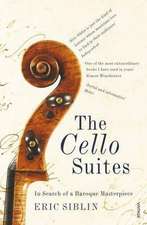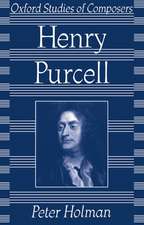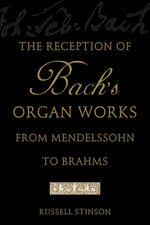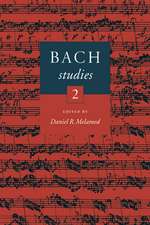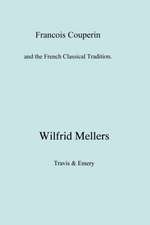The Courtly Consort Suite in German-Speaking Europe, 1650–1706
Autor Michael Robertsonen Limba Engleză Paperback – 9 sep 2016
| Toate formatele și edițiile | Preț | Express |
|---|---|---|
| Paperback (1) | 489.26 lei 6-8 săpt. | |
| Taylor & Francis – 9 sep 2016 | 489.26 lei 6-8 săpt. | |
| Hardback (1) | 1117.88 lei 6-8 săpt. | |
| Taylor & Francis – 10 iul 2009 | 1117.88 lei 6-8 săpt. |
Preț: 489.26 lei
Nou
Puncte Express: 734
Preț estimativ în valută:
93.65€ • 101.76$ • 78.72£
93.65€ • 101.76$ • 78.72£
Carte tipărită la comandă
Livrare economică 21 aprilie-05 mai
Preluare comenzi: 021 569.72.76
Specificații
ISBN-13: 9781138251489
ISBN-10: 1138251488
Pagini: 298
Dimensiuni: 156 x 234 x 25 mm
Greutate: 0.45 kg
Ediția:1
Editura: Taylor & Francis
Colecția Routledge
Locul publicării:Oxford, United Kingdom
ISBN-10: 1138251488
Pagini: 298
Dimensiuni: 156 x 234 x 25 mm
Greutate: 0.45 kg
Ediția:1
Editura: Taylor & Francis
Colecția Routledge
Locul publicării:Oxford, United Kingdom
Cuprins
Contents: Foreword; Introduction; Une splendeur et une magnificence incroyable: music and dance at the German courts; Nach der lustigen Frantzösischen Manier zu spielen: national style and the transmission of dance music; Composées sur le même mode ou ton: defining the suite; Frantzösische branles, courantes, sarabandes, ballettas: manuscript sources of the courtly suite before 1682; Burgermeistern Syndicis: printed editions by court composers before 1682; Ouverturen und Airs: the German Lullists - I; Verscheidenen Ouverturen, Chaconnen, lustigen Suiten: the German Lullists - II; Cette nouvelle harmonie: unifying French and Italian styles; Einer teutschen Führung: Vienna, the imperial court; Eine frische Frantzösische Ouverturen ihnen allen zu præferiren: conclusion and case studies; Bibliography; Index.
Notă biografică
Following a career as teacher, harpsichordist and organist, Michael Robertson completed his PhD under Peter Holman at the University of Leeds in 2004. His principal musicological interest is in the dance music written for instrumental consorts in seventeenth-century Germany. He is now a research associate at the University of Leeds.
Recenzii
’No whistle-stop tour of this volume can do justice to its richness of content....I was impressed by both the musical and the musicological acumen of the author. The numerous music examples are well chosen and presented... I came away from reading this book with a knowledge of many things of which I had at best only dimly been aware before. Some of Robertson’s arguments are memorable.’ Michael Talbot, Early Music ' ... [a] thorough study ... worth reading.’ Early Music Review ’... clearly written... meticulously researched, it breaks new ground. ...a valuable contribution to our knowledge of a relatively unfamiliar body of music.’ The Consort ’No whistle-stop tour of this volume can do justice to its richness of content. ... I came away from reading this book with a knowledge of many things of which I had at best only dimly been aware before. ... Readers will perhaps return to this book most often as a starting point for further investigation of the surprisingly many worthy, and sometimes excellent, composers it brings for the first time to our notice.’ Early Music '...[an] important study ... [with] a wealth of valuable information.' Viola da Gamba Society Journal
Descriere
Dance music at the courts of seventeenth-century Germany is a genre that is still largely unknown. Dr Michael Robertson sets out to redress the balance and study the ensemble dance suites that were played at the German courts between the end of the Thirty Years War and the early years of the eighteenth century. The book examines the dissemination of dance music, the influence of Jean-Baptiste Lully, instrumentation and performance practice, and the differences between the French and Italian styles. It also studies the courtly suites before the advent of Lullism and the differences between the suites of court composers and town musicians.

